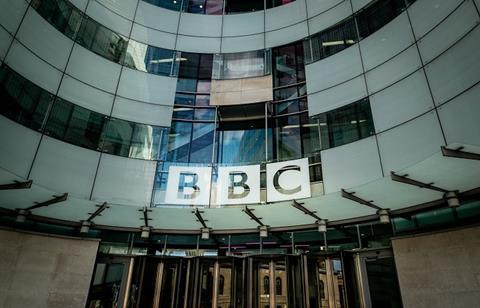
Media organisation the British Broadcasting Corporation (BBC) has reported a 6.8% mean gender pay gap for fixed hourly pay as at March 2019; this is a decrease from the 10.7% mean gender pay gap it reported in 2017.
The organisation has reported its gender pay gap data for BBC Public Service Broadcasting staff based in England, Scotland and Wales alongside its 2018-2019 annual report. This is in line with the government’s gender pay gap reporting regulations and ahead of the public sector submission deadline of 30 March 2020. In addition, the organisation’s BBC gender pay gap report 2019 also includes voluntary disclosures, such as its ethnicity, disability, part-time and lesbian, gay, bisexual, transgender and queer pay gaps.
The gender pay gap reporting regulations require organisations with 250 or more employees to publish the difference between both the mean and median hourly rate of pay for male and female full-time employees; the difference between both the mean bonus pay and median bonus pay for male and female employees; the proportions of male and female employees who were awarded bonus pay; and the proportions of male and female full-time employees in the lower, lower middle, upper middle and upper quartile pay bands.
The BBC's median gender pay gap for fixed hourly pay is 6.7% as at March 2019. This compares to a 9.3% median gender pay gap recorded in 2017 and a 7.6% gap for 2018.
Its mean gender pay gap for bonuses paid in the year to March 2019 is 23.1% and the median gender pay gap for bonus pay stands at zero. This relates to the awards given through the BBC’s voucher recognition scheme and long-service award programme. During the past year, 1,341 employees received vouchers, with the median value for both men and women being £250, and 229 staff received long-service awards, equating to an average payment of £4,259.
More than a third (39.5%) of employees in the highest pay quartile at the BBC are women, compared to 41.2% in the second quartile, 46.4% in the third quartile and 54.6% in the lowest pay quartile. Across the business, including the BBC Studios division, 47.9% of the workforce are female.
The BBC’s mean black, Asian and minority ethnic (Bame) pay gap is 3.2% and the median Bame pay gap is 1.1% in favour of women. Its disability pay gap data records a mean pay gap of 4.8% and a median of 3.1%. The mean pay gap for lesbian, gay, bisexual, transgender and queer (LGBTQ) staff is 0.7% in favour of women, compared to a median of 0.7% in favour of men. The BBC also analysed its pay gap for part-time employees, which shows a mean pay gap of 1.5% and a median pay gap of 1.7%.
The BBC attributes its gender pay gap to having too few women employed in senior roles and the fact that more women than men are in the organisation’s lowest pay quartile; it believes that 6.2% of its median gender pay gap is driven by these structural concerns. Currently, 43.8% of leadership roles are held by women.
Tony Hall, director-general at the BBC, committed to closing the organisation’s pay gap by the end of 2020 and delivering a gender pay gap of 3% or less in each of the BBC’s career level bands. In line with this goal, each job at the BBC now has an individual pay range, and the organisation’s pay and grading structure has also been updated.
Other steps the organisation has taken to address its gender pay gap include introducing a flexible-working policy, updating recruitment processes, implementing a mentoring scheme, providing training and support for team leaders and having mixed gender panels and shortlists when hiring. In addition, 77% of the BBC’s job roles are advertised on a flexible-working basis.
The organisation’s technology division, Design and Engineering, has also introduced a career returners programme, while its Step into Tech scheme helps women gain the skills they need to move into a software engineering career.
The BBC has also increased its minimum wage to £20,000 per annum, improved sick pay and its paternity and shared parental leave offering. Maternity and paternity pay for parents of premature babies has also been increased.
Hall said: “We remain committed to reaching our target. We know this will be challenging. The changes we’re making need to be sustainable in the long-term and not quick fixes that address it in the short-term. That’s why, [while] we continue to compare favourably to most other large organisations, I am determined that we go further and lead the way.”











